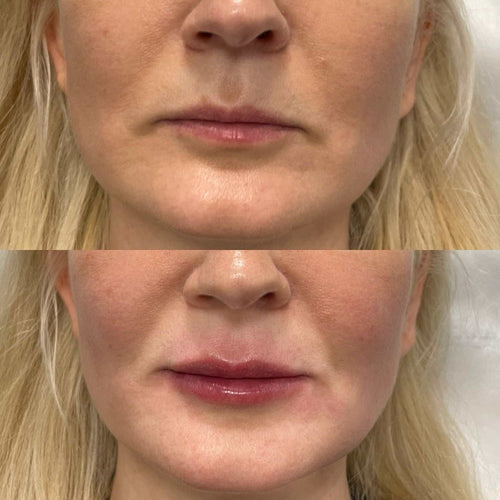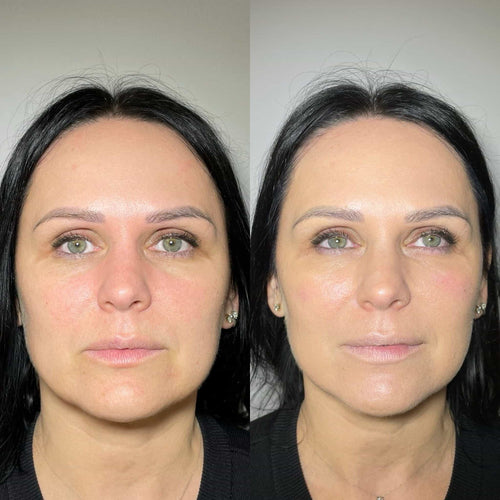Get Started with Dermal Fillers – Book with Dr. Laura Geige Now

## Medical Conditions to Consider
Reserve a Dermal Filler Session with Dr. Laura Geige Now

Determining who is not a suitable candidate for tear trough fillers involves considering various medical conditions that could potentially complicate treatment or increase risks.
Certain skin conditions, such as active infections, eczema, rosacea, or psoriasis in the treatment area, can make filler injections unsuitable. These conditions could worsen inflammation and lead to complications.
Individuals with a history of allergic reactions to fillers, anesthetics, or other cosmetic procedures should avoid tear trough filler injections. Allergies can manifest as swelling, itching, redness, or even anaphylaxis.
Patients with bleeding disorders, such as hemophilia, or those taking blood-thinning medications like aspirin or warfarin, may experience excessive bruising or bleeding after injection.
Autoimmune diseases, like lupus or scleroderma, can affect the body’s immune response to foreign substances, potentially leading to adverse reactions to fillers.
Pregnancy and breastfeeding are generally considered contraindications for tear trough filler injections due to limited safety data regarding potential effects on the fetus or infant.
Certain medications, including retinoids, can thin the skin and make it more susceptible to bruising or other complications from injections. It’s crucial to discuss all medications with a healthcare professional before considering fillers.
Anyone with a history of keloid scarring should exercise caution as they are at an increased risk of developing excessive scar tissue after injection.
It’s important to consult with a qualified and experienced physician or aesthetic injector to determine your candidacy for tear trough filler injections. A thorough medical history review and physical examination will help assess any potential risks or contraindications.
Blood Clotting Disorders
Skin Infections or Active Acne
Anatomical Considerations
Skin infections and active acne are significant contraindications for tear trough filler treatment.
This is due to several anatomical considerations:
- Risk of Infection Spread
- Inflammation Interference
- Altered Skin Texture
- Potential for Complications
The injection site, the delicate under-eye area, is close to sensitive structures like the eye muscles and blood vessels. Introducing filler into infected tissue significantly increases the risk of spreading the infection deeper, potentially leading to serious complications.
Active acne involves inflammation, which can disrupt the healing process of filler injections. Injecting into inflamed areas can worsen inflammation, cause further irritation, and increase the likelihood of adverse reactions like nodules or bumps.
Acne often results in scarring, changes in skin texture, and pigmentation abnormalities. These factors can create an uneven surface that may not integrate well with the filler, leading to unpredictable and unsatisfactory aesthetic results.
Patients with active acne or skin infections are more susceptible to complications like bruising, swelling, and infection following any injection procedure. The tear trough area is particularly vulnerable due to its thinness and proximity to vital structures.
Addressing these anatomical concerns is crucial for patient safety and achieving optimal aesthetic outcomes. Therefore, it’s essential to treat active skin infections and acne before considering tear trough filler treatment.
Thin Skin
Presence of Existing Fillers
Facial Nerve Issues
## Expectations & Lifestyle Factors
Determining who is a suitable candidate for tear trough filler involves a careful assessment of individual factors, including medical history, facial structure, and lifestyle.
Individuals with certain underlying conditions or tendencies may not be ideal candidates:
Schedule a Consultation for Dermal Fillers with Dr. Laura Geige Today
-
Active Herpes Simplex Virus (HSV) Infections:
The injection site could potentially trigger an outbreak.
-
History of Excessive Scarring:
Filler placement could lead to more prominent scarring.
-
Bleeding Disorders or Medications Affecting Clotting:
Increased risk of bleeding at the injection sites.
-
Unrealistic Expectations:
It’s crucial for patients to understand that tear trough filler can minimize shadows and improve volume, but it cannot completely eliminate them or produce dramatic transformations.
Lifestyle factors also play a role:
-
Smoking:
Nicotine constricts blood vessels, potentially hindering the filler’s efficacy and increasing the risk of complications.
-
Excessive Sun Exposure:
UV radiation can break down collagen and elastin, diminishing the effects of filler over time.
-
Alcohol Consumption:
Alcohol can dehydrate the skin, making it appear thinner and more prone to wrinkles.
Open communication between patients and their healthcare provider is essential. Patients should discuss their medical history, expectations, and lifestyle habits to determine if tear trough filler is a suitable option for them.
Smoking Habits
Unrealistic Expectations
Certain Medications
Gifted Brits The New Cinema Magazine Divine Magazine Clover Design Online Electric Youth Magazine
- Neck Line Filler Treatment Near Hale, Surrey - June 6, 2025
- Nasolabial Fold Fillers – Marionette Lines Near Tolworth, Surrey - June 3, 2025
- Why Is My Lip Filler Hard - June 3, 2025